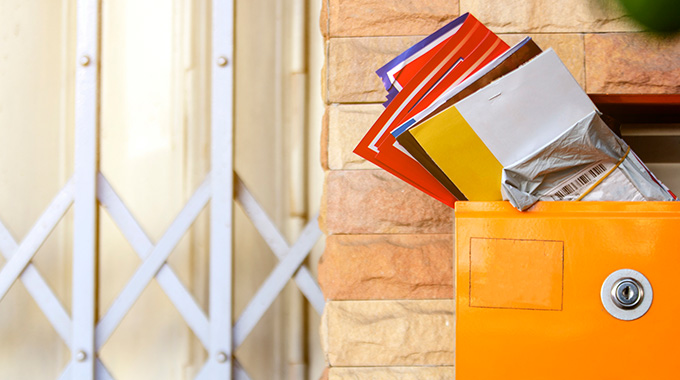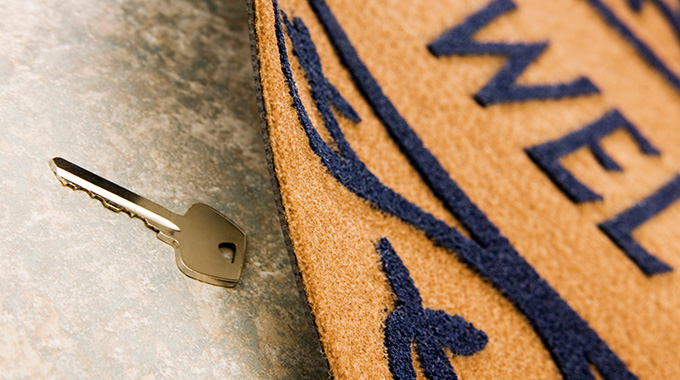Mail piled up in your mailbox and packages left at your door can signify to potential burglars that you're not home. Fortunately, you can request a hold on your mail through the United States Postal Service by either filling out a request online or visiting your local post office branch.
4. Lock up your valuables
If a burglar does break into your home, they'll likely be heading straight for common hiding spots for things like jewelry, cash, and other valuables. This includes bedside or desk drawers, vanities, and closets.
Before embarking on your trip, consider locking up these kinds of valuables in a safe or other secure location. Ideally, valuables should be stowed away with other important documents (such as Social Security cards and birth certificates) in a fireproof and water-tight safe for added protection.
5. Set up timers for lights
You can also make it less obvious that you're away on vacation by setting up lights around your home on timers. This way, some combination of exterior and interior lights will turn on and off at various times of day, making it look as though the home is occupied. These days, Wi-Fi-connected smart devices (such as light bulbs and outlets) make it easier than ever to control your home's lighting from afar, either manually or with automatic timers you set up with an app so you have one less thing to think about while you're away.





